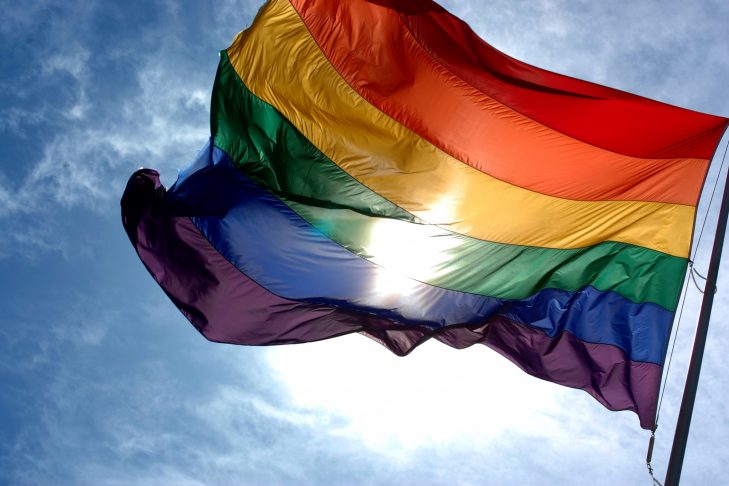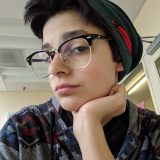With June peeking its prismatic, aestival head around the corner, my gayness is growing to full power. In addition to the anniversary of the Stonewall riots, June has become synonymous with glitter-strewn parades and rainbow flags displayed in store windows. My first Pride in Boston was last year, when my friends and I were accidentally caught in the parade attempting to walk to the Common. We walked on the wrong side of the barrier, flanked by cheering people on one side and colorful drag queens on the other. I leaned into the mistake, high-fiving lines of outstretched palms while my girlfriend clung to the back of my dress. I was too happy to be embarrassed, more unbelievably happy than I thought possible in that moment.
Of course, it wasn’t always like this. A decade earlier, a misspoken word or failed social interaction could earn a casual slur, a brand of disapproval: GAY instead of A. Casual homophobia napped under desks, seeped in through the vents. A generation raised on “Family Guy” and “South Park,” exposed to LGBT people only as jokes or objects of ridicule. It’s difficult to explain the homophobia of the ‘00s Midwest without a nod to the aggressive religious edge that made it so prolific. The humid air was saturated and we, having spent so much time oxidizing in it, didn’t even notice.
I grew up Reform and while we didn’t talk about LGBT issues, I didn’t face the vitriol some of my classmates got from their religious institutions. I was a die-hard LGBT rights activist (as so many closeted gay kids are) and often vocally supported the community while in the same breath proclaiming that I was, of course, straight as a flagpole. It was so cool, I thought, to be a part of a religion that was as OK with gay people as I was. But no religion is a monolith, and even amongst minority groups bigotry digs its roots in.
I took a comparative religion class my junior year of high school partially because I was questioning my relationship with religion and partially because my absolute favorite history teacher, Mr. Dalton, promised a class full of intelligent speakers and spirited discussion. I was one of three Jewish kids in the class, which made up about a third of the Jewish population of my high school. I was also attending Sunday evening religious classes at the local JCC, and when Mr. Dalton told us that the Conservative rabbi who taught those classes would be speaking on Judaism, I was floored.
“Every single speaker, someone inevitably asks about gay marriage,” Mr. Dalton told us at the start of the class, and when the rabbi arrived halfway through the semester, I decided that no one would be better to ask than me. After all, I was Jewish and a gay ally. Together, we could show the rest of the class how tolerant and beautiful Judaism was.
“What do you think about gay marriage?” I asked, making eye contact with the intelligent, thoughtful religious figure whose words I hung onto every Sunday. He paused, quoted Leviticus, then made his true opinions known.
“If we let gay people marry, pretty soon people will start marrying dogs.”
My jaw dropped. The rest of the discussion was a blur. I asked if he was comparing two people in love to bestiality and he shouted me down, cutting off every statement until I clenched my teeth behind closed lips. The conversation moved on. I was 16.
The story doesn’t end there. Three years later, after the Supreme Court decision, my sister took the same class, attended the same talk, asked the same question. The rabbi smiled and told her that he was all for gay marriage, that love was beautiful. She crowed about how great he was, and it felt as if someone took my heart out.
What would have been different if we’d been exposed to that kind of support? Would my classmates and I have realized ourselves sooner? Would I have spent five more agonizing years cramming myself into a cultural space that wanted nothing more than my obedience? Maybe. Or maybe not.
I stopped attending the Sunday classes, pulled away from the embrace of my religion. When I returned, the zeitgeist had shifted and the community welcomed me back exactly as I was, as I had always been. But religious involvement in Pride still chafes. I’m not the only LGBT person still looking over her shoulder, waiting for the knife. Maybe one day I’ll stop. But maybe not.



